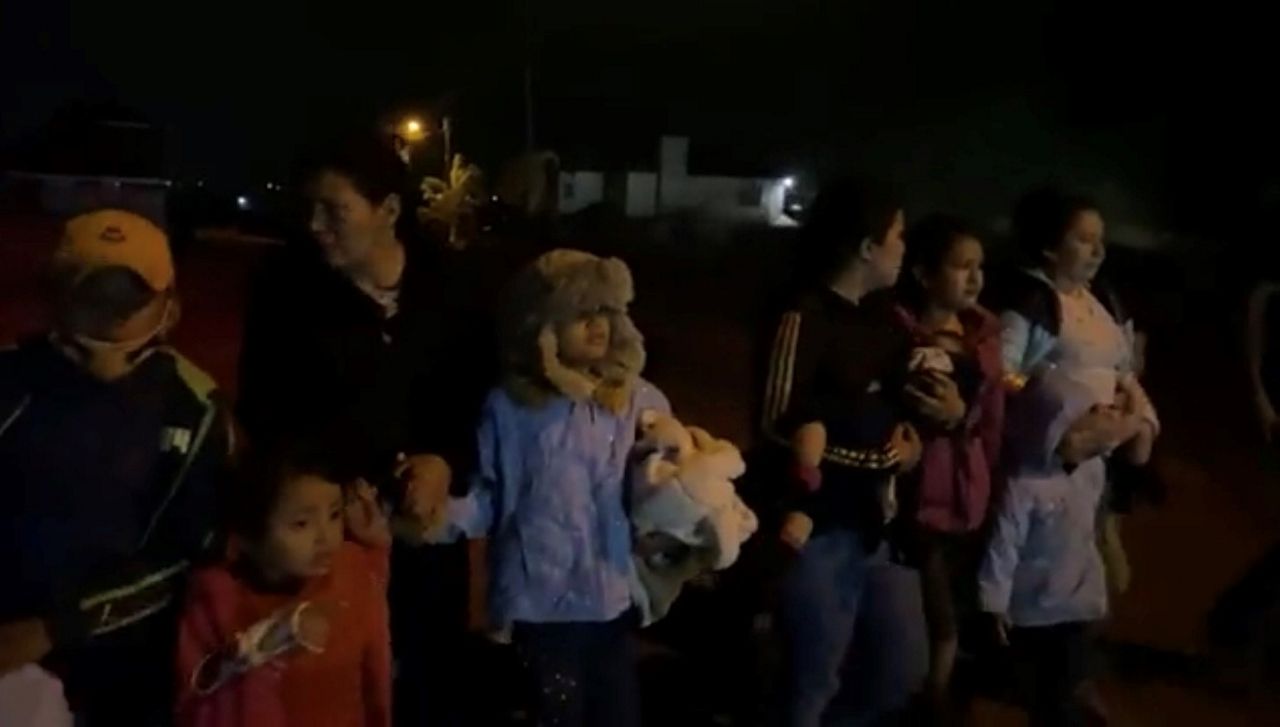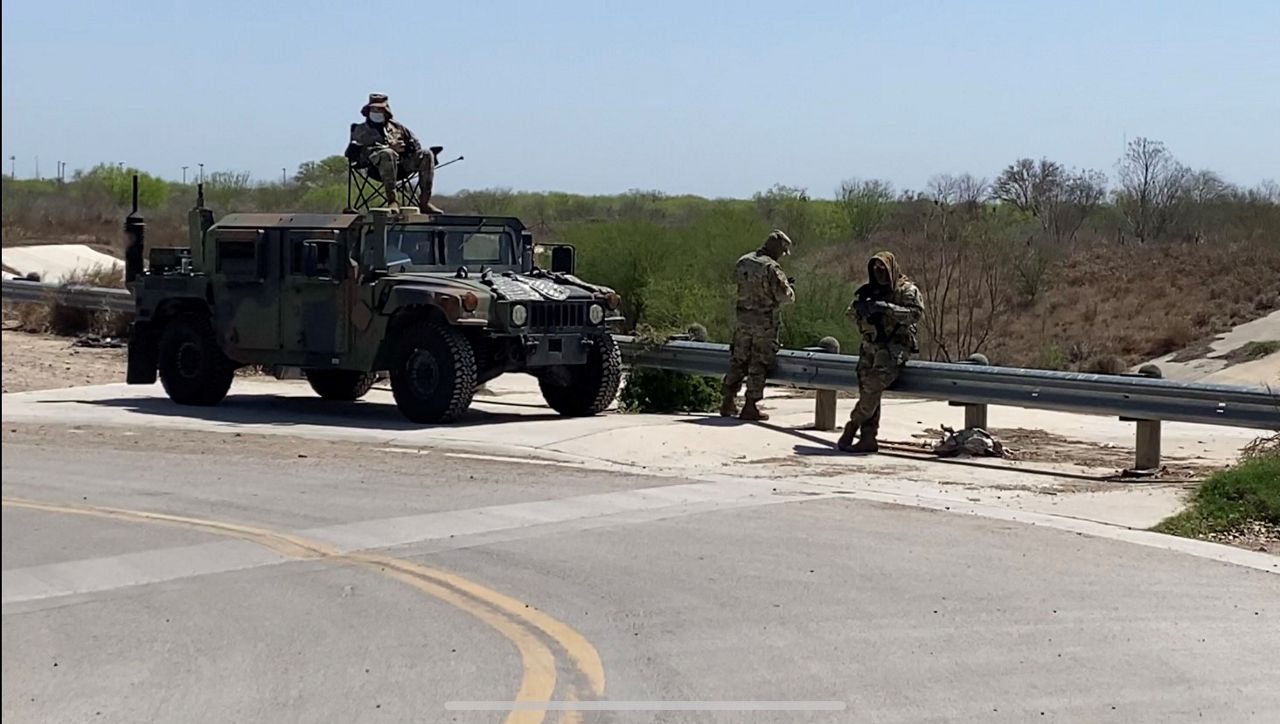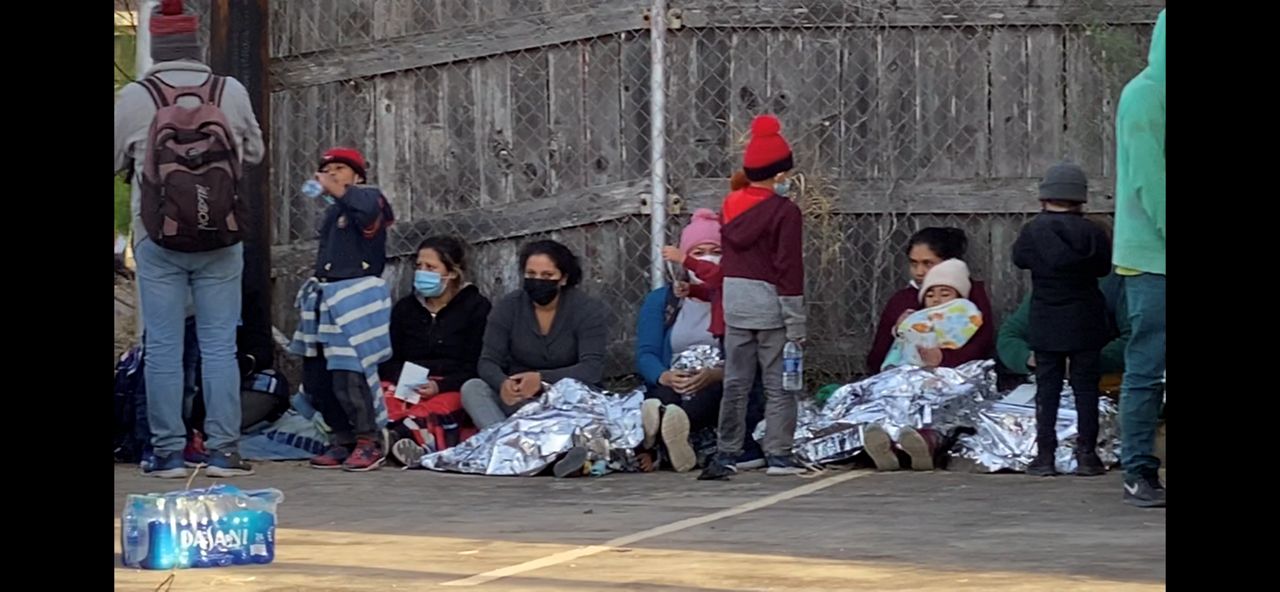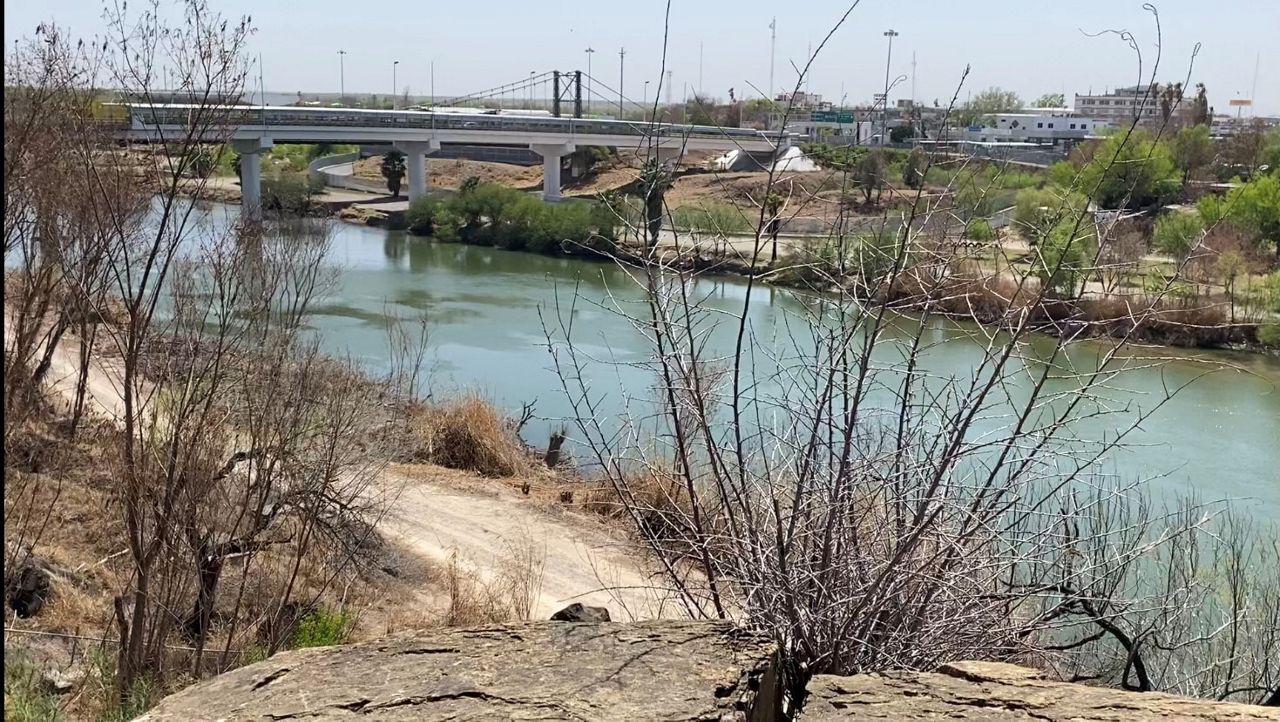ROMA, Texas – Clarissa Gonzales, the owner of La pistolera, a Spanish language radio station in Roma, Texas, says her hometown is again the epicenter of a humanitarian crisis.
“The situation that we are living right now is very similar to what we are living in 2019. The seriousness is equal because people are coming in large numbers," Gonzales said.

Gonzalez says she daily drives to the edges of town looking for migrant activity. It was there that on Saturday, March 13, late at night, a group of 600 migrants crossed the Rio Grande. She shared with us a video that captured the large group, composed of mostly woman and children, walking at night, coming out of the bushes and shrubs and reaching the streets of town, where Border Patrol processes them in the parking lot of a local bank.
Maylin Carrera, a migrant in the group, with tears in her eyes, explained the reason why many of them leave their countries.
“We left behind our family and our whole world, but in Guatemala you just can’t live anymore. We are doing it for our children," she said.
Since February, according to Gonzales, migrant apprehensions have become common in the streets of Roma. But since the current migrant surge, the large groups of migrants are already disrupting people’s lives.
“Especially on the weekends. That’s when we see the large groups. On the weekdays it’s mostly small groups of five to seven people, but every 15 minutes, and in almost every corner,” she explained.
Another element that adds tension to people’s daily lives is the presence of the National Guard posted in the streets in response to criminal organizations taking advantage of the crisis and smuggling drugs through the Rio Grande more often.

“The entire country should know that the people on this area are the ones being affected the most. Some are facing property damage. And we have seen a lot of pursuits," Gonzales said.
The pursuits Gonzales mentions are after mostly single adult males who don’t qualify for asylum relief and run away from Border Patrol.
But the majority of people crossing recently, Gonzales says, are women with children. Local people are kindhearted and help them with food and water.

All the migrants after being apprehended are transported to processing facilities such as the one in Donna, Texas.




